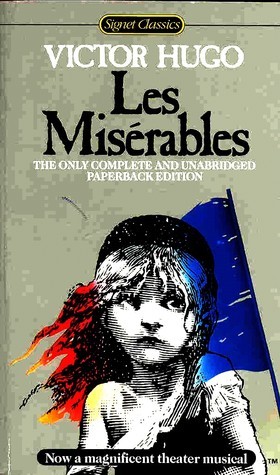More on this book
Community
Kindle Notes & Highlights
“Teach the ignorant as much as you can; society is culpable in not providing instruction for all and it must answer for the night which it produces. If the soul is left in darkness, sins will be committed. The guilty one is not he who commits the sin, but he who causes the darkness.”
The beautiful is as useful as the useful.” He added after a moment’s silence, “perhaps more so.”
“Have no fear of robbers or murderers. Such dangers are without, and are but petty. We should fear ourselves. Prejudices are the real robbers; vices the real murderers. The great dangers are within us. What matters it what threatens our heads or our purses? Let us think only of what threatens our souls.”
connie liked this
Indeed, is not that all, and what more can be desired? A little garden to walk, and immensity to reflect upon. At his feet something to cultivate and gather; above his head something to study and meditate upon; a few flowers on the earth, and all the stars in the sky.
Human thought has no limit.
the mysterious world which surrounds us returns what it receives; it is probable that the contemplators are contemplated.
In October, 1815, he was set at large: he had entered in 1796 for having broken a pane of glass, and taken a loaf of bread.
This is the second time, in his studies on the penal question and on the sentences of the law, that the author of this book has met with the theft of a loaf of bread as the starting-point of the ruin of a destiny. Claude Gueux stole a loaf of bread, Jean Valjean stole a loaf of bread; English statistics show that in London starvation is the immediate cause of four thefts out of five.
Can human nature be so entirely transformed from top to bottom? Can man, created good by God, be made wicked by man? Can the soul be changed to keep pace with its destiny, and become evil when its destiny is evil?
Is there not in every human soul, was there not in the particular soul of Jean Valjean, a primitive spark, a divine element, incorruptible in this world, immortal in the next, which can be developed by good, kindled, lit up, and made resplendently radiant, and which evil can never entirely extinguish.
“Forget not, never forget that you have promised me to use this silver to become an honest man.”
“Jean Valjean, my brother: you belong no longer to evil, but to good. It is your soul that I am buying for you. I withdraw it from dark thoughts and from the spirit of perdition, and I give it to God!”
This daughter of obscurity had race, She possessed both types of beauty—style and rhythm. Style is the force of the ideal, rhythm is its movement. We have said that Fantine was joy; Fantine also was modesty.
The Parisian is among Frenchmen what the Athenian was among Greeks. Nobody sleeps better than he, nobody is more frankly frivolous and idle than he, nobody seems to forget things more easily than he; but do not trust him, notwithstanding; he is apt at all sorts of nonchalance, but when there is glory to be gained, he is wonderful in every species of fury.
TABLE TALK and lovers’ talk equally elude the grasp; lovers’ talk is clouds, table talk is smoke.
Running beer gathers no foam. Gentlemen, no haste. Mingle dignity with festivity, eat with deliberation, feast slowly. Take your time. See the spring; if it hastens forward, it is ruined; that is, frozen.
It has been said to err is human; I say, to err is loving.
The supreme happiness of life is the conviction that we are loved; loved for ourselves—say rather, loved in spite of ourselves, this conviction the blind have.
Light is not lost where love enters.
There is one spectacle grander than the sea, that is the sky; there is one spectacle grander than the sky, that is the interior of the soul.
One can no more prevent the mind from returning to an idea than the sea from returning to a shore. In the case of the sailor, this is called the tide; in the case of the guilty, it is called remorse. God upheaves the soul as well as the ocean.
“Well,” said he, “let us take this course! let us do our duty! Let us save this man!”
The instinct of Cosette sought for a father, as the instinct of Jean Valjean sought for a child. To meet, was to find one another.
he has a pearl in his soul, innocence; and pearls do not dissolve in mire.
Paris would be greatly vexed, had she no guillotine.
“The day is vulgar,” said he, “and only deserves closed shutters.
In six months the little girl had become a young woman; that was all. Nothing is more frequent than this phenomenon. There is a moment when girls bloom out in a twinkling and become roses all at once. Yesterday we left them children, to-day we find them dangerous.
When the mine is loaded, and the match is ready, nothing is simpler. A glance is a spark.


